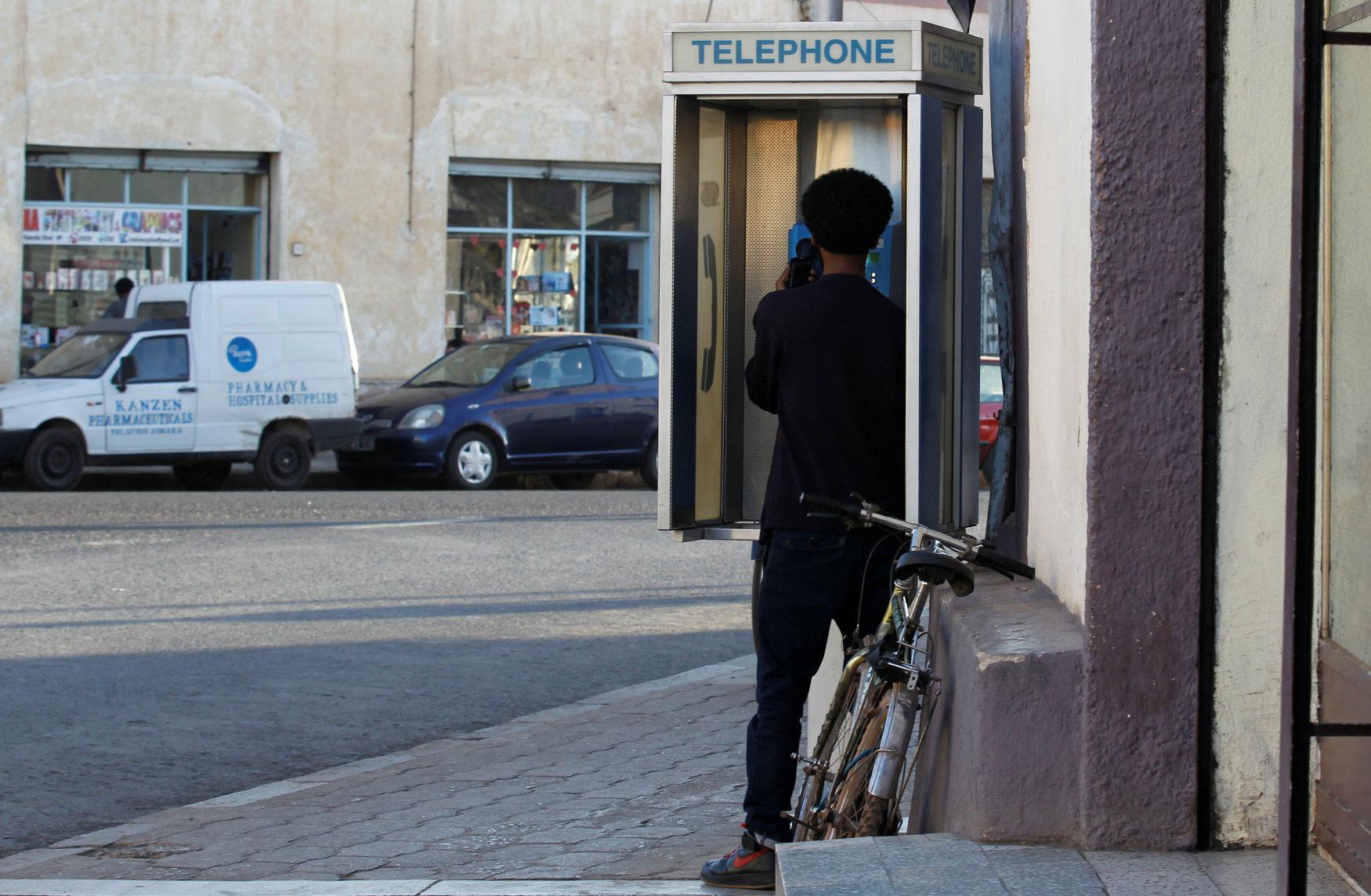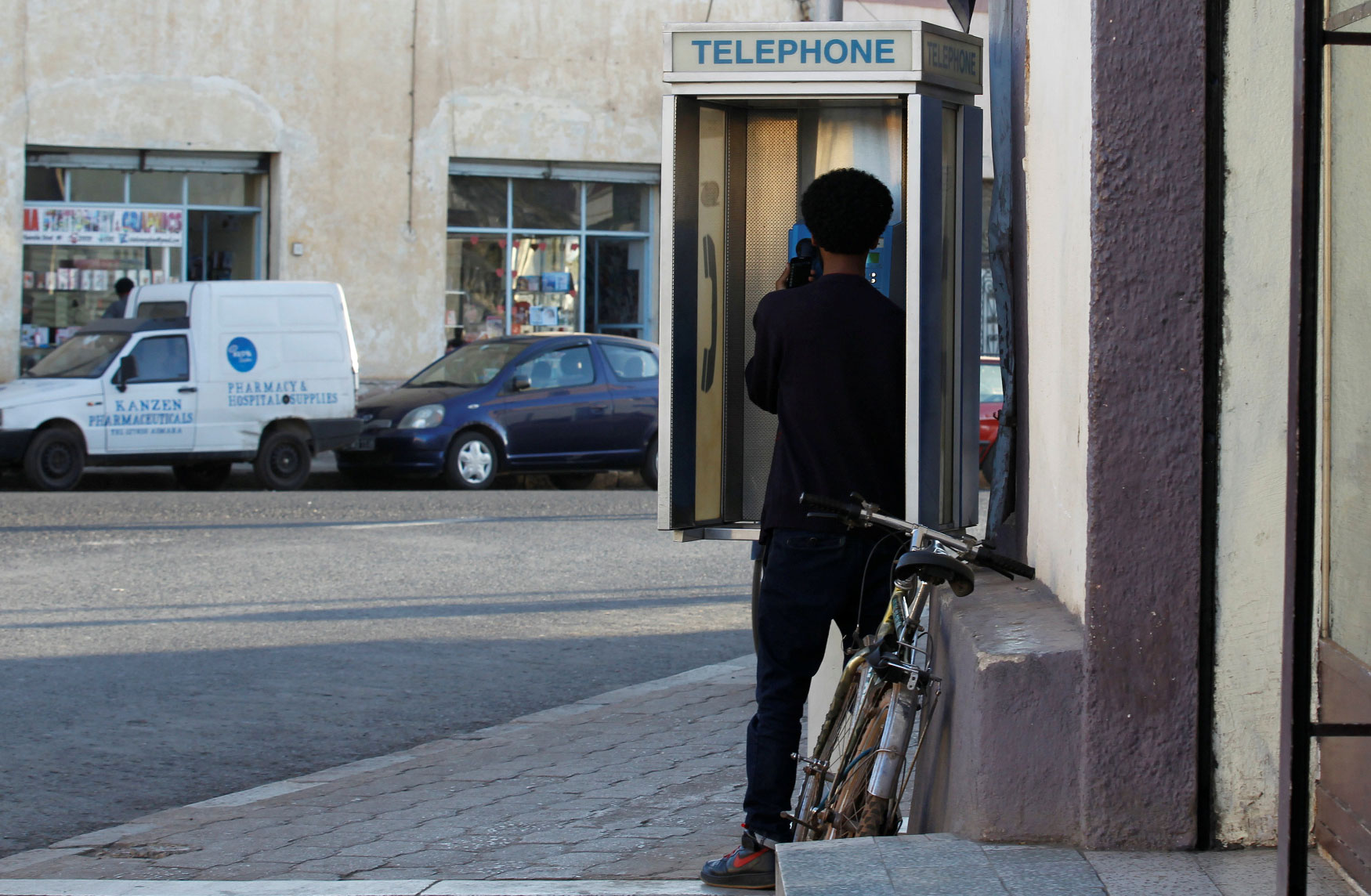Families speak as Ethiopia restores phones to Eritrea
ADDIS ABABA - On Tuesday morning, Ethiopian mechanic Mohammed Osman placed a phone call he had dreamt of making for 20 years.
He called his mother Kedija, who was expelled from Ethiopia to Eritrea in 1998 after the Horn of Africa neighbours went to war over their border.
Kedija, Kedija's mother and more than 70,000 Ethiopian citizens of Eritrean origin were wrenched from their families, put on buses and trucks bound for Eritrea - and given travel papers marked "Expelled-Never to Return".
A peace deal finally forged in the past two days brought relations out of the deep freeze, and prompted the phone lines across the border to be reconnected.
When Mohammed last heard his mother's voice, he was 13. He and his father had not heard from her since.
"I couldn't recognise her at first but for her laughter. It was surreal," he said. "It was bittersweet."
Kedija told him she was doing fine in Eritrea's capital Asmara, but that his grandmother had died.
End of war
The historic reconciliation could transform politics and security in the volatile Horn region, which hundreds of thousands of young people have fled in recent years in search of safety and opportunities in Europe.
On Monday, the leaders of both countries announced they were ending the costly "state of war" that has reigned since fighting stopped in 2000. Diplomatic relations were never restored because the sides could not agree how to implement a peace deal.
After meeting and embracing in Asmara on Sunday, Ethiopian Prime Minister Abiy Ahmed and Eritrean President Isaias Afewerki told their peoples they were choosing love and forgiveness over hatred and violence.
By Tuesday morning, people in Addis Ababa were frantically trying to phone their relatives in Eritrea.
"My parents have been separated ever since. As a family, we are planning to travel to Eritrea very soon and reconnect for the first time in 20 years," said Mohammed.
His mother told him that as soon as she heard that phone connections were being restored, she tried to phone a shop in the neighbourhood of Addis Ababa where the family used to live.
"She hadn't forgotten the number," he said. But the call didn't get through. Instead, after news of the peace deal broke, distant relatives in Saudi Arabia called him to pass on his mother's number.
Fleeing conscription
Sirak Aseghid, 23, who fled to Ethiopia in 2016 after serving in Eritrea's army for two years, spoke to his elderly parents late on Monday.
"Now they now know I am fine," he said. "You can imagine the distress it causes families. Once you cross the border, the possibility of reconnecting with your family diminishes. You don't know where you're going to end up."
Ever since he fled the conscript army -- like many young Eritrean men who cannot face the prospect of indefinite, low-paid service -- he has thought about attempting the dangerous trek across the Sahara in the hope of finding a boat to cross the Mediterranean.
But the prospect of peace has given him hope that Eritrea's young men will be allowed to return to civilian life.
"I want to return as soon as possible," he said. "But that will depend on finding employment as well."
At least travel between the two countries should soon be much easier - Ethiopian Airlines said it would start a regular service between Addis Ababa and Asmara next week.



